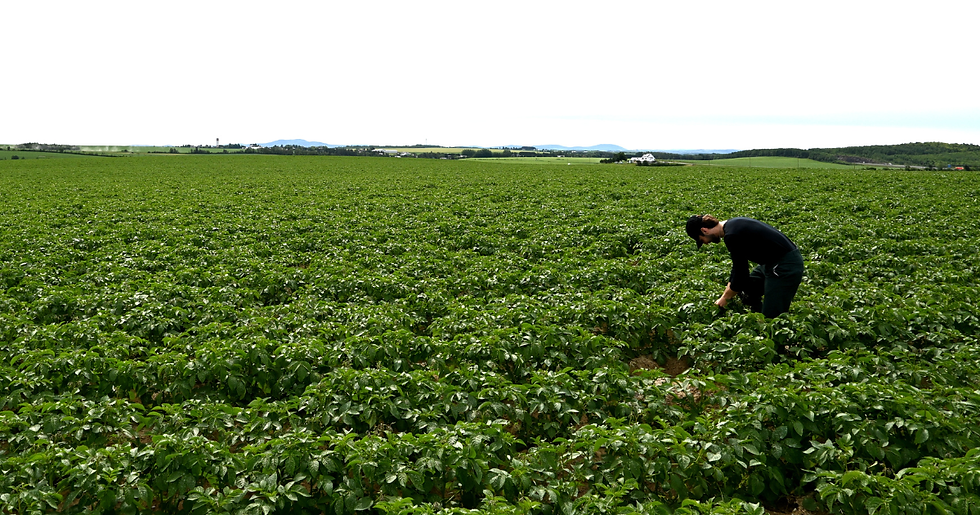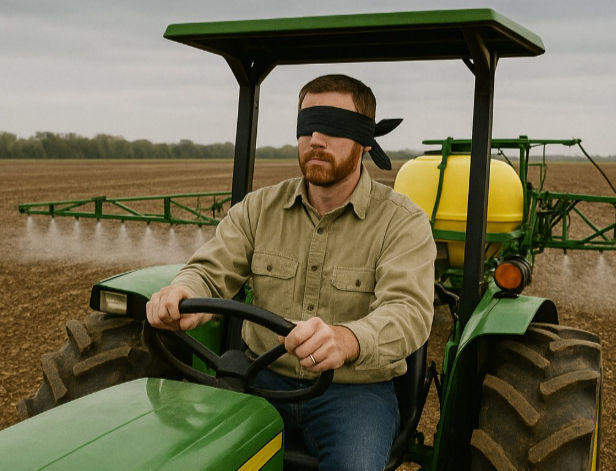Picketa Systems Launches Canola Pilot with Cargill, Bringing Real-Time Tissue Analysis to Prairie Farmers
- Picketa Systems

- Mar 10, 2025
- 5 min read
Picketa Systems, Canadian-based agricultural technology company, is proud to announce the addition of canola to its LENS (Leaf Evaluated Nutrient System) platform. Building on the initial success in potatoes and corn, Picketa is expanding its support of staple broadacre crops to meet the precision nutrient management needs of North America’s canola growers.

The LENS utilizes pattern-matching AI from leaf structure to identify 13 nutrient concentrations in less than a minute. Initially developed for potatoes on a family farm in Saint-André, New Brunswick, the LENS is now deployed across Canada and a dozen states in the US, helping agronomists monitor and manage crops precisely. After potatoes, corn was added in 2024 to widespread usage among existing and new users – accounting for approximately 50% of samples in 2024.

The journey to include canola began in November 2023, when Picketa’s team partnered with Hi-Tech Seed Productions to collect essential data in Chile. Through collaborations and field trials across North and South America, the team gathered lab-validated samples to calibrate the LENS for Canola, ensuring accurate nutrient readings tailored to the crop’s specific requirements.
“We were happy to collaborate and support Picketa in their efforts to validate real-time tissue analysis with their LENS technology in canola,” said Scott Horner, HyTech’s Chief Commercial Officer. Adding, “we see Picketa’s LENS as a key tool for ourselves and any producer who wants to fine tune fertility in season to maximize yield from every acre of canola.”

The addition of Canola provides real-time nutrient insights that were previously unfeasible for broadacre farmers. Unlike traditional lab testing, which can be slow and costly, the LENS enables instant results, allowing growers to make timely, data-driven decisions. From two seasons’ worth of data, the AI models are performing on-par with the potato and corn models from their initial calibration projects. Having received positive reception with those, Picketa is confident in their ability to reliably analyze canola in 2025, and that the process can be replicated on an increasing number of crops.
The Initial Canola Model is optimized for the middle standard deviation of data, meaning it performs best in the usual case—a typical canola plant grown under typical conditions and sampled during the standard agronomic timeframe. Although nutrient models have reached initial release status, ongoing validation through the LENS user network will play a crucial role in refining accuracy and expanding model coverage. This continuous feedback loop ensures that calibration extends beyond controlled trials, integrating real-world agronomic conditions and making models more robust across diverse soil types, weather patterns, and crop varieties. The LENS system includes built-in outlier detection that identifies samples deviating from historical database patterns, helping users recognize extreme conditions and encouraging targeted lab sampling to improve model calibration.

“Some of our earliest supporters, like angel investors Jesse Wiebe and Chris Nykolaishen of StartupTNT, are canola growers from Saskatchewan who recognized the potential for the LENS in their operations,” says Xavier Hébert-Couturier, CEO and Co-Founder of Picketa Systems. “Their early support helped us develop the technology, and with successful models now validated for potatoes and corn, adding canola was the natural next step.” “Real-time tissue analysis will create new opportunities to help a deficient crop that never existed before. Picketa’s LENS technology will help our canola crops reach their yield potential for factors within our control,” confirms Chris Nykolaishen, Kamsack, Saskatchewan-based canola farmer.

As part of Picketa’s continued growth, the company is partnering with Cargill, a global leader in agriculture and food production, to pilot the LENS technology in a key Cargill location in Camrose, Alberta, Canada. This collaboration will explore how real-time nutrient data can enhance agronomic strategies, improve input efficiency, and support sustainable farming practices. Cargill’s extensive network and agronomic expertise make it an ideal partner in demonstrating the value of the LENS across a broader range of cropping systems. “Cargill is committed to advancing sustainable and profitable farming solutions, and we see great potential in Picketa’s LENS technology,” said Glenn Houser, Crop Inputs Leader for Cargill’s Ag & Trading business in Canada. “This pilot will help us better understand how real-time nutrient analysis can support our growers in making data-backed decisions throughout the season.”
Cargill’s pilot program will focus on integrating a LENS into its agronomic services while enhancing its commitment to 4R Nutrient Stewardship—ensuring the right source, rate, time, and place for nutrient applications. With more than 200 facilities across North America and deep expertise in grain and oilseed production, Cargill is positioned to introduce growers to the benefits of real-time tissue analysis. The pilot aims to evaluate farmer interest and value by demonstrating its use through hands-on engagement and field sampling.
Picketa is offering canola on their platform to current and new LENS agronomists for the 2025 season. To support these clients, Picketa is also offering paid lab validation sampling during the initial weeks of the season, which continuously fine-tunes the models for regional and varietal differences.

Beyond supporting in-season nutrient decisions, the LENS also empowers agronomists and fertilizer manufacturers to develop and validate new fertilizer formulations with greater speed and reach. By providing real-time plant nutrient data from commercial fields, the LENS helps profile nutrient trends across different crops, regions, and management practices, enabling year over year improvements. Additionally, it facilitates the creation of custom critical nutrient levels tailored to new crop varieties and specific growing environments. This capability allows companies like Cargill to demonstrate the impact of their nutrient solutions more effectively, helping growers adopt improved nutrient management strategies with confidence.

Due to variable field conditions, suboptimal fertilization is common in oilseed and grain crops, especially with macronutrients like nitrogen. This results in yield losses in the case of insufficient nutrient supply or increased costs in the case of overfertilization. Picketa’s innovative technology will mitigate these situations by identifying suboptimal nutrient supply in season, which can be addressed, for example, by foliar fertilizer applications. In addition, the available crop nutrient information can be used to better plan and fine tune fertilizer recommendations for the following season.
Picketa’s mission is to unlock agronomic potential through technology and will continue to add more crops to their platform. The focus on broad acre crops suggests that crops like soybeans, wheat and cotton are next in development. The aim is to cover every major crop type in the future and make the LENS the standard for tissue analysis. To learn more about how the Picketa LENS can help optimize your fertilizer use, or for more information on the Canola, Corn or Potato nutrient evaluation models, including full per nutrient reports, contact Picketa at https://www.picketa.com/contact. For the latest company and industry news, sign up for the Picketa Field Notes Newsletter.





What crops should we add next? Let us know! - Xavier of Picketa Systems